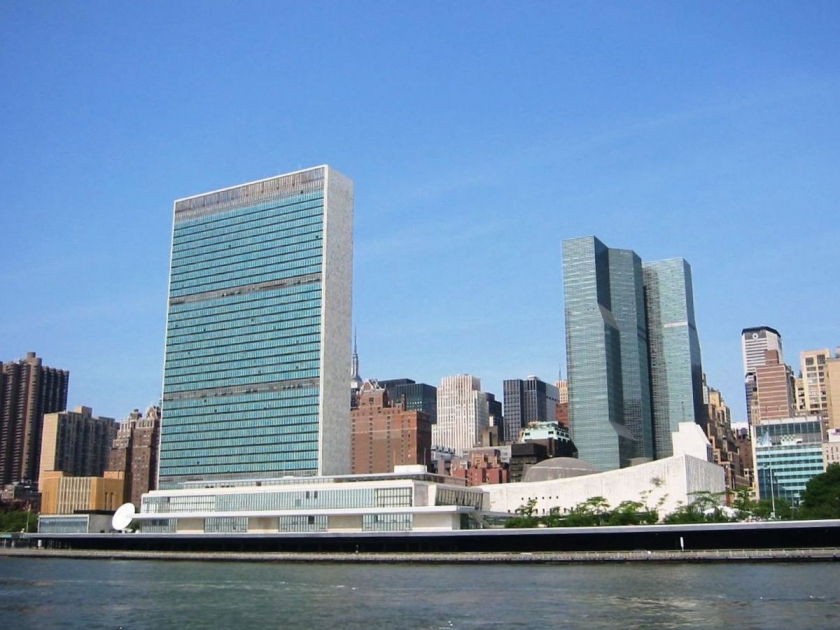Statement by Representative of the Russian Federation Ms.Irina Tyazhlova at the Sixth session of the UN Open-Ended Working Group on security of and in the use of ICTs 2021-2025 under agenda item "Regular institutional dialogue"
Mr. Chair,
A year and a half is left before the conclusion of the OEWG mandate. Against this background, defining the format that will succeed the Group after 2025 becomes increasingly relevant. The key task is to elaborate a consensus decision on this topic. States may have different approaches to various aspects of international information security, but a unified vision should be developed on a new negotiation mechanism and its parameters. The future platform should provide equal conditions for all participating States, and not be tailored to the interests of certain countries to the detriment of the interests of others. I am sure that no one would challenge this approach.
That is why it is fundamentally important to resolve the issue of regular institutional dialogue within the OEWG – in accordance with its mandate enshrined in the UNGA resolution No.75/240 and the consensus recommendations of the Group’s report adopted in July. We consider absolutely unacceptable the aspiration of a number of States to push forward a decision that meets their interests – through a simple majority in the General Assembly. Negotiations in the First Committee have demonstrated that this approach is not shared the majority of developing countries: the most offensive provisions on the launch of a Programme of Action (PoA) were excluded from the final draft resolution. We encourage authors and supporters of the initiative to discuss it within the current Group.
Attempts by a number of delegations and international officials to present the PoA as allegedly the only possible and already predetermined format of the future dialogue on international information security are puzzling. Let us recall: other proposals on this aspect of the mandate have also been submitted to the OEWG, in particular, the concept paper of Belarus, the DPRK, Nicaragua and Russia, reflected in the second annual OEWG report.
Taking into account the dynamics of the negotiations, Russia would like to present on behalf of Belarus, Burundi, Cuba, the DPRK, Eritrea, Myanmar, Nicaragua, Russia, Syria, Sudan, Venezuela and Zimbabwe an updated concept paper on the future UN mechanism in the use of ICTs. We will transmit it to the Chair of the Group immediately after the statement. We request publishing the document at the OEWG website.
We believe that the open-ended working group format has proved its efficiency and relevance in practice. Since 2018, it has managed to gain trust and support of the vast majority of countries, primarily developing ones. In this regard, we propose to preserve our common heritage by establishing after 2025 a permanent decision-making OEWG.
We consider it necessary to ensure continuity between the new body and its preceding groups. This relates, first of all, to the principle of consensus in decision-making. There is no doubt that States face difficulties elaborating universal arrangements that meet the interests of all countries. However, practice shows that this is possible and this is the way to develop the most effective, result-oriented solutions. One recent evidence is the agreement reached in July 2023 on the establishment of a global intergovernmental PoCs Directory for the exchange of information on computer attacks/incidents.
The mandate of the permanent OEWG should focus on further promoting the creation of an open, secure, stable, accessible and peaceful ICT environment and build on the mandate of the current OEWG. We see the development of legally binding rules, norms and principles of responsible behavior of States as elements of a future universal treaty on international information security as a priority area of activities for the future mechanism. The focus is also on the applicability of international law in the use of ICTs, confidence-building measures and mechanisms for practical cooperation between States, as well as capacity-building in the digital environment. The development of universal agreements on these aspects is aimed at preventing interstate conflicts in the global information space and ensuring their peaceful resolution.
On behalf of the cosponsors, we request all participants of the OEWG to study the concept paper presented as “food for thought”. For our part, we are ready for a constructive exchange of views and consideration of useful comments and proposals in order to create a negotiation mechanism on international information security that meets the interests of all countries.
Thank you for attention.
